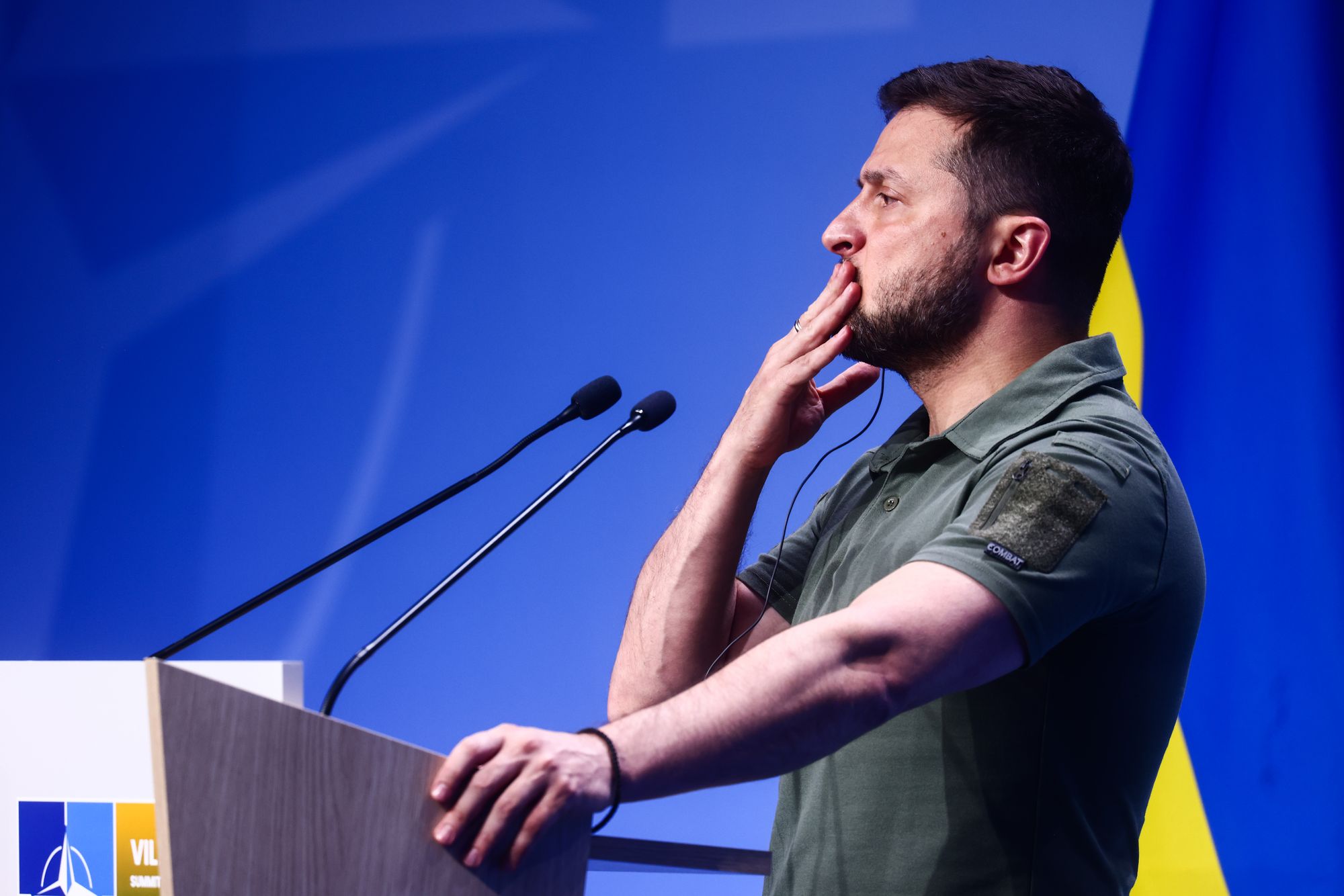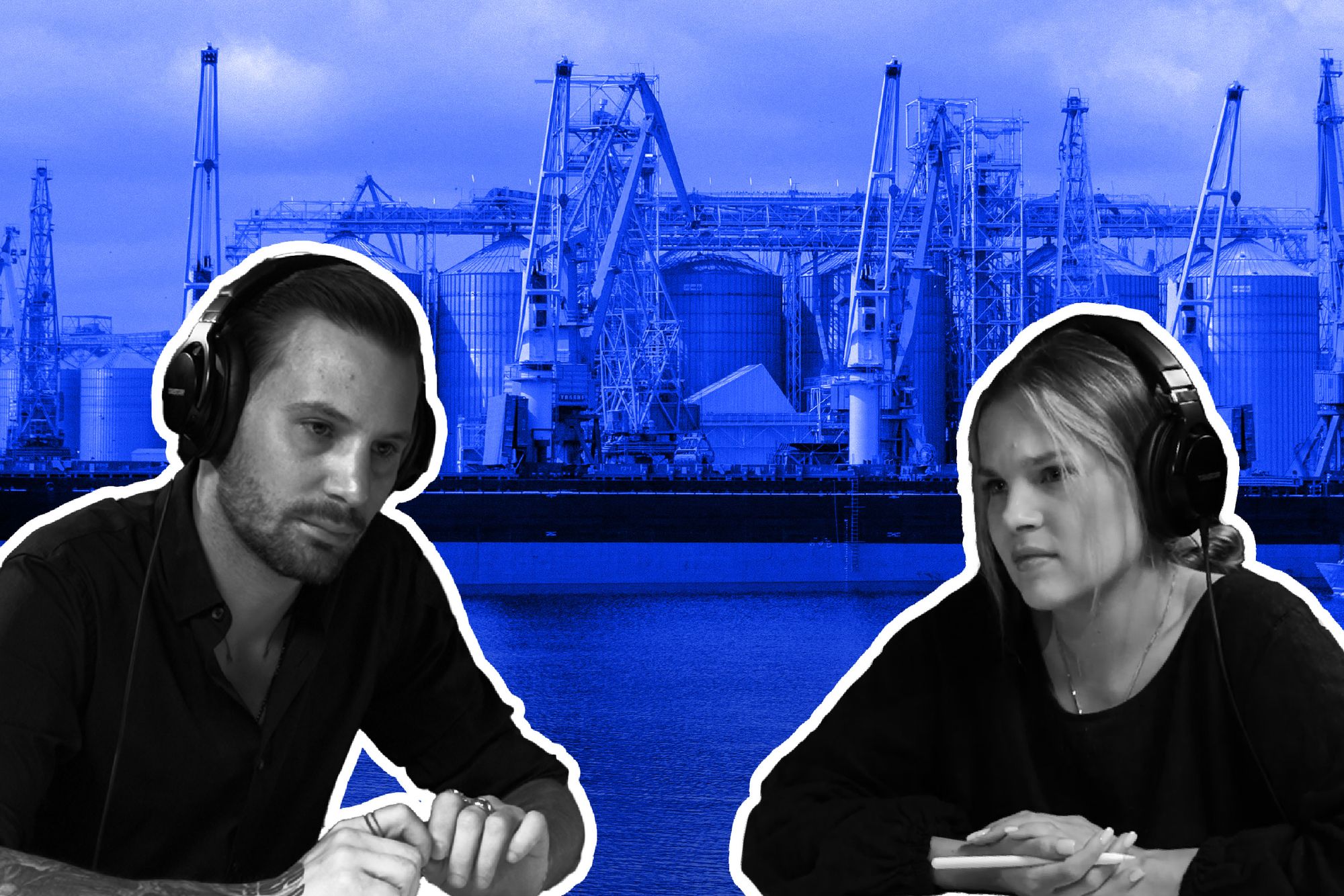NATO-Ukraine Council to discuss Black Sea security as Russia terminates grain deal.
A NATO-Ukraine Council meeting will discuss security in the Black Sea on July 26 following Russia's withdrawal from the grain deal, NATO spokesperson Oana Lungescu told[1] Reuters on July 22. The announcement came the same day when President Volodymyr Zelensky requested[2] NATO Secretary-General Jens Stoltenberg to discuss the terminated Black Sea Grain Initiative. Lungescu said the meeting would take place at the level of ambassadors.
It is going to be the first NATO-Ukraine Council meeting after the inaugural session at NATO's summit in Vilnius. NATO launched the council, aimed at enabling closer coordination between Kyiv and the alliance, on July 11.
Ukraine gets a fraction of what it wanted at NATO summit Ukraine collected many promises at Vilnius, except the one it craved the most.
In a joint communique, the 31 NATO member states said Ukraine's future is in the alliance, which it will one day join. They got rid of the need for a Membership Action Plan, effectively reducing the number
 [3]
[3]
Russia's July 17 withdrawal from the grain deal dealt a blow to global food security. After withdrawing, Russia said all the vessels using the maritime grain corridor would be considered military cargo to Ukraine, thus a target.
In response, Ukraine's Defense Ministry said[4] on July 21 that any vessels heading to Russian or Russian-occupied ports on the Black Sea will be treated as carrying military cargo "with all associated risks." Brokered by Turkey and the U.N. last July, the grain deal[5] has allowed Ukraine to export its agricultural products through the Black Sea to Africa, Asia, and Europe during wartime. The deal played an integral role in mitigating global food price surges triggered by Russia's war.
Russian forces have since launched multiple air attacks against Ukrainian Black Sea port cities, including Odesa[6], destroying port infrastructure and tens of metric tons of grain after withdrawing from the deal.
This Week in Ukraine Ep.
17 - Black Sea grain deal is dead. What can Ukraine do? Episode #17 of our weekly video podcast "This Week in Ukraine" is dedicated to the Black Sea grain deal, how Russia weaponized it, and ultimately killed it.
Host Anastasiia Lapatina is joined by the Kyiv Independent's reporter Alexander Query. Listen to the audio version of the podcast on Apple, S...
 [7]
[7]  Alexander Khrebet
Alexander Khrebet
Reporter
Alexander Khrebet is a reporter with the Kyiv Independent. He covers Ukraine's foreign policy, alleged abuse of power in the country's military leadership, and reports on the Russian-occupied territories.
Alexander is the European Press Prize 2023 winner, the #AllForJan Award 2023 winner and Ukraine's 2022 National Investigative Journalism Award finalist. His was published in the Washington Times and Atlantic Council.
References
- ^ told (www.reuters.com)
- ^ requested (kyivindependent.com)
- ^ Ukraine gets a fraction of what it wanted at NATO summitUkraine collected many promises at Vilnius, except the one it craved the most. In a joint communique, the 31 NATO member states said Ukraine's future is in the alliance, which it will one day join.
They got rid of the need for a Membership Action Plan, effectively reducing the number
(kyivindependent.com) - ^ said (kyivindependent.com)
- ^ grain deal (kyivindependent.com)
- ^ Odesa (kyivindependent.com)
- ^ This Week in Ukraine Ep.
17 - Black Sea grain deal is dead. What can Ukraine do?Episode #17 of our weekly video podcast "This Week in Ukraine" is dedicated to the Black Sea grain deal, how Russia weaponized it, and ultimately killed it. Host Anastasiia Lapatina is joined by the Kyiv Independent's reporter Alexander Query.
Listen to the audio version of the podcast on Apple, S...
(kyivindependent.com)